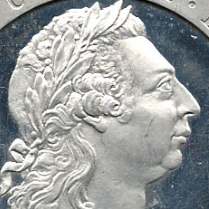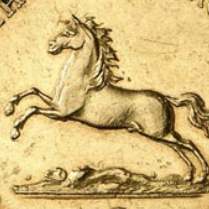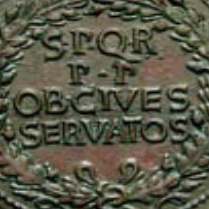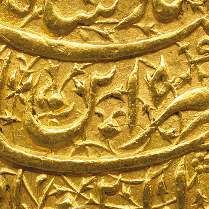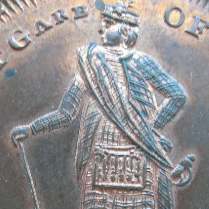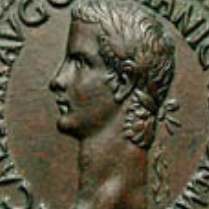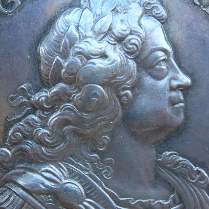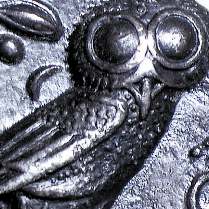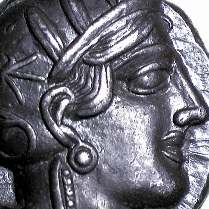Introduction
The British Numismatic Trade Association (BNTA) is the pre-eminent trade association for dealers in coins, medals and numismatic items within the United Kingdom and all members are required to adhere to this Code of Conduct.
BNTA members shall promote the lawful trade in coins, medals and numismatic items and oppose any illegal and unethical trading and the illegal removal of coins and numismatic items from their countries of origin or from the UK soil. This is a key principle of our Association.
The BNTA's Code of Conduct is the cornerstone of our Association. It is an essential requirement of membership that each and every member abides by these ethical principles to ensure the BNTA remains the pre-eminent UK trade association and its objectives become those of all who trade in coins and numismatic items. By them, we demonstrate our serious commitment to helping eradicate any unlawful trading. It is our further objective that they be adopted by all dealers in coins and numismatic items.
All our members are required to read and be familiar with this Code of Conduct and to use it to guide them in all aspects of their work. It is each member's responsibility to adhere to the Code of Conduct in its entirety. It is important that members speak out whenever they have a question or concern and by doing so are ensuring the continued vibrancy and well-being of our Association.
The BNTA Code of Conduct is our members' guide to conducting business with integrity and in keeping with the BNTA core values. The BNTA is committed to ensuring its members operate with clear and firm ethical standards every day in every transaction, irrespective of where it takes place.
Members must conduct their business in such a way as to bring no discredit to the Association or its members or the trade in general and shall co-operate with international and national law enforcement agencies whenever applicable.
Legal Movement and Sale of Property
Members must comply with all applicable laws, regulations and restrictions in the import or export of art, numismatic items, cultural objects, property, services, information or technology, wherever they operate in the world. The movement of property is strictly regulated in many countries around the world.
If members are engaged in the shipping of coins and numismatic items then the Association requires them to abide by export laws of the country from which the items will be shipped.
In addition, members must ensure compliance with all other national laws affecting the movement of goods - including (but not limited to) rules governing the movement of cultural heritage, precious metals and other culturally sensitive materials, and the movement of items to, from, or originating in countries subject to trade embargoes or sanctions.
If members are involved in the movement of property across international borders, they must know and comply with:
- All applicable export control requirements including licensing requirements for art, numismatic items and cultural property;
- Any legally imposed restrictions on doing business with certain foreign countries, including economic sanctions and prohibitions;
- The trade laws and regulations associated with the countries in which members do business;
- Their obligation to declare items honestly and accurately for customs purposes.
Due Diligence
Before offering property for sale, members must be satisfied that they have conducted the level of Due Diligence required to establish that the property they are handling is authentic and that there are no known legal obstacles to selling and passing title.
The BNTA requires members to adhere to the relevant domestic and international laws that govern the markets for archaeological and cultural heritage related property, and in many respects, BNTA standards go beyond the legal requirements.
If members are not certain as to the laws of a particular jurisdiction, or their application to a specific item, please consult the BNTA council for advice.
Members must act in good faith throughout all transactions.
Members should record each transaction with diligence and keep records for a minimum 6 years.
Where a member is buying from another dealer or an auction house then the member should record the transaction and note any provenance as provided. Some items will have more detailed provenance than others.
Where a member is buying from a person other than a dealer or an auction house then the member should establish the identity of the vendor. Unless the vendor is well known to the dealer, where an item is worth over £10,000 then member should request photographic identification and if practical take and retain a copy of it. Members should obtain in writing:
- The name and address of the vendor;
- A warranty that the vendor has good title to the objects;
- Enquire as to where, when and how the vendor obtained the objects, as can be provided by the vendor;
- Where the vendor acquired the objects outside the United Kingdom, confirmation that the item has been exported or imported in conformity with local laws and where available evidence of that.
In addition, wherever possible members should arrange payment by a method that leaves an audit.
Lawful Trading
Members undertake not to purchase or sell objects until they have established, through Due Diligence, that such objects were not stolen from excavations, architectural monuments, public institutions or private property and are lawfully on the market for sale.
Members will make all reasonable enquiries to ascertain any earlier ownership history of any numismatic items that they are considering purchasing, mindful that the illicit removal of coins from their original context may be damaging to our knowledge and understanding of the past and in the case of Treasure that the purchase of undeclared Treasure is illegal.
Members should record and preserve relevant prior ownership history of coins and numismatic items along with any evidence supplied.
Advertising
Members agree to conform to accepted forms of advertising within the meaning of the Trades Description Act. Members will promote the organization by use of the logo and their membership of the BNTA in their printed and digital presence. Any use of the BNTA logo or association is prohibited by any non-member.
Article of Association
Members agree to abide by and support the Articles of Association and any further such articles as may be agreed by the Association. All members should hold a copy of these for reference.
Stolen Art Databases
It is advisable for the membership to consider that coins and numismatic items with a purchase price of over £10,000 should be checked with the Art Loss Register, (www.artloss.com)or any other comparable stolen art database, unless they have already been so checked.
Damaging objects & Repair
Members will diligently record all repair work to any coin or medal and keep, as appropriate, photographic records of objects prior to repair and restoration and be honest and open by describing in writing the amount of repair and restoration undertaken to a prospective purchaser.
Contracts
Members will agree to fulfill all contracts made by them either orally or in writing, They further agree to pay on delivery for any material accepted from a customer unless otherwise desired or agreed or by monthly account for such material supplied by a Member of the Association. The member will accept the return of any material which may be provided to be unsatisfactory, either from a customer or from a Member of the Association, (subject to Terms of Sale).
Authenticity
Members agree never knowingly to offer, exhibit or advertise counterfeits, copies, restrikes or reproductions without them being clearly described as, and in no way knowingly represent such items as being the genuine article.
Members shall guarantee in writing the authenticity of all objects offered for sale for a period of not less than 10 (ten) years from the date of sale. In case of a dispute, the issue may be considered by the Committee for arbitration.
Knowledge and Research
Members agree to help Members of the Association and any others of serious intent in the furtherance of numismatic knowledge and research.
Conflict Zones
The BNTA subscribes to the tenets of the Hague Convention and will pay particular attention to items that may have originated from conflict zones.
In these instances further documentation should be sought from the seller demonstrating they have been in circulation outside the conflict zone prior to conflict.
The BNTA is also governed by the following: Objects (including coins) originating from Syria are subject to restrictions as required by (EU) Council Regulation No. 1332/2013 of 13 December 2013 amending (EU) Council Regulation No. 36/2012 of 18 January 2012 concerning restrictive measures in view of the situation in Syria. The Iraq (United Nations Sanctions) Order 2003 prohibits the importation or exportation of any cultural property (including coins) illegally removed from Iraq since 6 August 1990.
Respecting Local Law and Customs
All BNTA Members shall obey local laws wherever they operate and ensure they are familiar with the relevant laws. In the conduct of business, the Association encourages its members to respect local customs, but this cannot be used as an excuse for violating any applicable laws.
Discipline for Code Violations and Membership
The BNTA regards violation of the law and of this Code as a most serious matter. Every member is accountable for his or her own behaviour, and misconduct will not be excused because the action was taken under the direction of, or at the request of, someone else. No member should ignore or condone any illegal or unethical conduct. There is only one sanction for being held to be in breach of this Code and that is expulsion.
Any member charged with breaching this Code of Conduct or the Articles of Association will be required to attend a hearing at which the issue of any breach of these rules shall be considered. The following process will apply:
- The BNTA council will form the disciplinary panel.
- Any member who is subject to disciplinary action shall be advised in writing (by email or letter) of the allegations with as much detail as the BNTA can reasonably provide ('the Complaint').
- The member shall have 14 days in which to respond to the Complaint and shall set out in the response, all matters on which the member wishes to rely in answering and responding to the Complaint, including the names of any witnesses and copies of all documents on which the member relies ('the Members Reply').
- The BNTA shall then convene a disciplinary hearing to take place as soon as is practical to coincide with one of the council meetings (not more than 60 days)
- No one other than a member of the BNTA or a witness may attend the Disciplinary hearing and legal representation is not permitted.
- The disciplinary panel, acting by a 75% majority shall determine if the case is proved or not to the civil standard of proof (balance of probabilities) and if the case is proved shall expel the member.
- Any member who is expelled is not able to apply to re-join the BNTA for a minimum of 5 years.
Any member who is held to be in breach of the rules may appeal to the Chairman of the BNTA within 14 days of receiving written notice of the finding. The Chairman shall consider the appeal on paper only and without any hearing and advise the member of his decision within 14 days.
Membership of the BNTA is for a term of one year and subject to annual confirmation. The council will consider at a meeting within three months preceding the end of year the membership of each member and such member shall cease to be a member at the end of that calendar year unless confirmed by a majority of the Council present at such meeting. The Council is not required to give any reason for not confirming the membership of any member and they will be informed in writing to that effect.
Books and Record KeepingAll members must always record the full details of each and every business transaction in which they engage. These records must be complete, accurate and reliable and comply with applicable accounting principles, laws, rules and regulations.
Members must never make any false or artificial entries in their books and records.
Deposits
Members agree to place to the credit account of any client money paid to them by the client. They agree to refund all or any part of the money in respect of the value of any goods that they are unable to supply if such repayment is requested. If no such demand is made, the member will retain the money held in credit for the client for a reasonable period. In the event that the client is living outside the UK, the member will deduct from the repayment no more than is expended on normal bank conversion/charges.
Grading
BNTA members will undertake to adhere to internationally accepted grading standards and it is their duty to act in good faith with the descriptions and grading of the items that they sell.
Live and Online Auction Rules
BNTA members who undertake auctions are committed to conducting auctions in an honest, fair, ethical and transparent manner. All auctions must be conducted in accordance with laws applicable in the jurisdiction in which they are held.
An Auction company, owned by a member, registered in the UK will be deemed to have membership of the BNTA under the auspices of the member.
Anti-Money Laundering and Terrorist Financing
The BNTA is committed to the fight against money laundering and terrorist financing, which continues to be the focus of considerable attention by governments, international organizations and law enforcement agencies around the world.
Money laundering is the process by which funds generated through criminal activity (such as fraud, drug dealing, terrorism) are moved through financial or commercial transactions to further the crime or to conceal the illegal source of proceeds.
The anti-money laundering and terrorist financing laws make it a crime to accept or process the proceeds of criminal activity or funds intended to support terrorist activity, whether in the form of money, coins, bullion, art, antiques or jewellery or other items.
BNTA members are committed to strict compliance with all applicable laws regarding anti-money laundering and combating terrorist financing.
Members must be vigilant in the fight against money laundering and must not permit their businesses to be used for money laundering activities.
The BNTA does not condone bribery, regardless of where members are located, even if permitted by local custom, practice or law. This means members may not engage in any form of bribery, including offering, soliciting or accepting anything of value, directly or indirectly, that is given with the intent to obtain or retain business or secure services. There is no exception for small amounts. It is important to remember that engaging in bribery, or even appearing to engage in such activity, can expose members to criminal liability.
Members must also maintain accurate books and records and must not hide or obscure or disguise the nature or purpose of a payment or source of funds.
Improper Payments - Government Officials and Others
Members must be especially cautious to avoid bribery when dealing with government officials, including officials of international organizations and political parties, as well as employees of state-owned companies. This can even include employees of companies and joint venture partners that have been nationalized or have significant government ownership stakes.
The BNTA
2016
